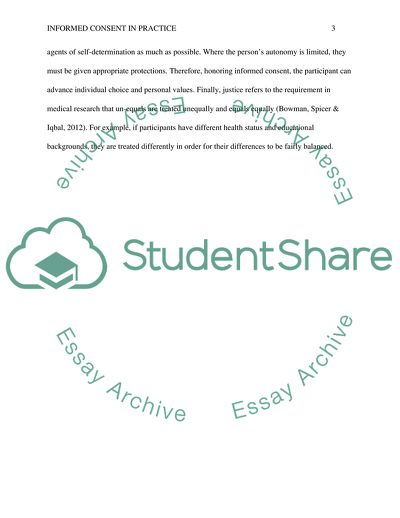Informed Consent in Practice Health System Example | Topics and Well Written Essays - 250 words. https://studentshare.org/medical-science/2105705-informed-consent-in-practice
Informed Consent in Practice Health System Example | Topics and Well Written Essays - 250 Words. https://studentshare.org/medical-science/2105705-informed-consent-in-practice.


